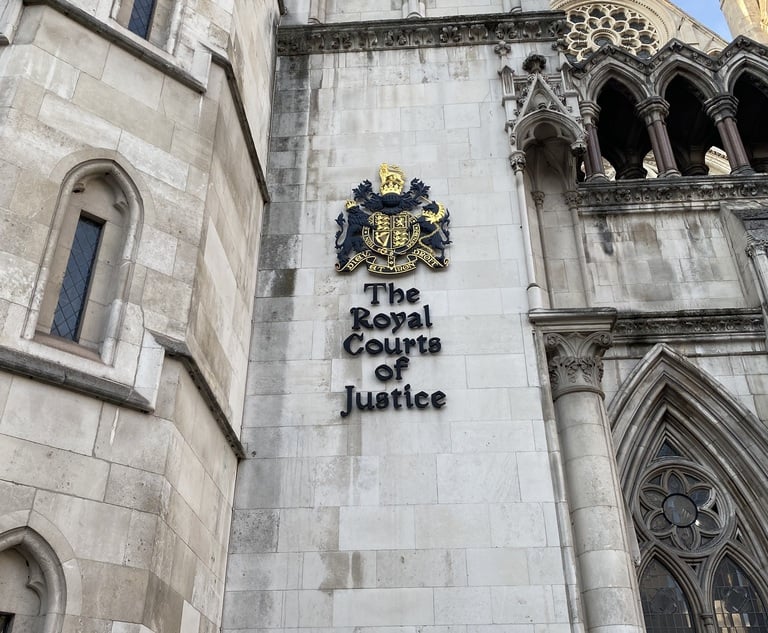Professor Jonathan Harris QC (pictured below) and former judge of the Court of Appeal Sir Richard Aikens (pictured above) have both been called on to provide evidence to the House of Lords’ select committee on Brexit. At Legal Week’s recent Trust & Estates Litigation Forum, they discussed the implications of Brexit on cross-border disputes and what it means for choice of jurisdiction and the enforceability of English law judgments.
Sir Richard Aikens: What do you reckon is the amount of UK law on cross-border litigation that is subject to European legislation?
Jonathan Harris: If you look at a book like Dicey & Morris as a guide, it’s about two thirds of all our law on cross-border litigation. There’s the recast Judgments Regulation harmonising our rules of jurisdiction and ensuring that English judgments are enforceable in the whole European Union, along with the Lugano Convention with Norway, Iceland and Switzerland. There’s the applicable law rules Rome I and Rome II, contract and tort, but there are hugely important other areas like the Insolvency Regulation, Service Regulation and Regulation on Obtaining Evidence.
Sir Richard Aikens: Not to mention all the family stuff and Brussels II. The problem we face is that for every regulation there is, we’re bound into it at the moment through being part of the European Union and once we leave all those regulations will cease to apply. Therefore, we have to put ourselves in the best position so that what we regard as useful cross-border dispute mechanisms for dealing with problems can be carried on into the future, and that’s a much bigger task than most people appreciated beforehand.
The Prime Minister is wrong in saying that everything can be put right by just having the Great Repeal Bill
Jonathan Harris: One specific concern I have is that all these instruments are enacted under Article 81 of the EC Treaty, and it says the European Commission may put forward instruments particularly when necessary for the promotion of the internal market. In other words, they are internal market instruments, and if we’re not going to be in the internal market, then an immediate possible reaction from the other countries is: you’re not having any of these instruments.
Sir Richard Aikens: The truth is that we’ve got to have cooperation from everyone else in Europe for this to work. The Prime Minister is wrong in saying that everything can be put right by just having the Great Repeal Bill, because it can’t. It can in some respects – applicable law, for instance, Rome I, Rome II, can be converted into domestic laws without too much difficulty – but where we need cooperation we’ve got to have some kind of arrangement, and that’s where the difficulty is going to be.
 Jonathan Harris: The priority areas therefore are the ones that require enforcement of judgments. If we just enact, say, the Judgments Regulation or Brussels II into domestic law, that would be a remarkably generous thing to do – yes, we’ll carry on enforcing, for instance, Latvian and Lithuanian judgments after we leave. But if we don’t do a deal they won’t carry on enforcing our judgments. My concern is doing a deal may mean unanimity from all 27 other countries and if, for example, a particular region of Belgium has to have a referendum to agree to this, it’s obvious that the road is going to be rocky.
Jonathan Harris: The priority areas therefore are the ones that require enforcement of judgments. If we just enact, say, the Judgments Regulation or Brussels II into domestic law, that would be a remarkably generous thing to do – yes, we’ll carry on enforcing, for instance, Latvian and Lithuanian judgments after we leave. But if we don’t do a deal they won’t carry on enforcing our judgments. My concern is doing a deal may mean unanimity from all 27 other countries and if, for example, a particular region of Belgium has to have a referendum to agree to this, it’s obvious that the road is going to be rocky.
How important do you think it is that we should try and retain the Judgments Regulation; and do you think we’ll succeed?
Sir Richard Aikens: I can’t see any reason why not, but for the question of the UK continuing to be subject to the jurisdiction of the Court of Justice of the European Union (CJEU). That is a political issue. If it is impossible politically then why can’t we do a deal as the European Union and Denmark did? Alternatively, why can’t we do a deal as the Lugano countries have done with the EU, where they have not got this necessity of going to the CJEU, and the EU has managed to live with that perfectly well?
Jonathan Harris: I rather suspect that the Lugano Convention is the key instrument for the future. It gives us most of what we need, it’s got most of the same harmonised jurisdiction rules, it’s got free movement of judgments. Politically, that looks more acceptable for everyone and it would still give us a pretty good result in terms of enforcing our judgments around Europe.
Sir Richard Aikens: I think it would. What about the Hague Choice of Court Convention? What about arbitration? Are those ways of dealing with the problem?
Jonathan Harris: The Hague Convention on Choice of Court Agreements is interesting because if there’s a jurisdiction clause for a contracting state, then all other contracting states must give up jurisdiction and respect it. Most importantly of all, it requires those contracting states to enforce the judgment of an English court. We can ratify this convention once we have left and we don’t need anyone else’s permission to do that. There are, however, several holes in the convention – the biggest one being that it only applies to exclusive jurisdiction clauses – and there are substantial numbers of carveouts, but it would be a lot better than nothing.
Sir Richard Aikens: It would be, but what about arbitration? Some City of London solicitors are advising their clients when it comes to drafting contracts and other instruments that arbitration is safe, so therefore let’s have an arbitration clause, preferably a London arbitration clause.
Jonathan Harris: There is likely to be an increase in the use of English arbitration clauses in contracts; but in the trusts context, one of the great debates is as to whether arbitration clauses work at all – it’s certainly not something you could be completely confident about working. More generally, many of the issues presently confronting lawyers and clients arise at the drafting stage. People need to be sure that their choice is going to work. If there is a perception that English law might not be the gold standard it once was, there is a potential risk that some contracts and trusts start to be changed away from English jurisdiction and English law.
Sir Richard Aikens: So why has English law and English jurisdiction traditionally been chosen? Is it because English judgments are enforceable, not only in Europe, but in many other jurisdictions in the world; or is it for some other reason?
Jonathan Harris: Certainly historically, parties tended to consider that it was a reputable, independent system, expedient, and liked to be able to brandish their English judgment and say, ‘I’ve been vindicated in a reputable court of law’ – even if they couldn’t enforce that judgment overseas. But for the past 30 years, we’ve taken for granted that we can also offer the benefit of all these European instruments and that English judgments will be enforceable across the EU – and as soon as those are stripped back, one may need to consider the balance between the general reputation of English courts and English law and the fact that we may need to say to clients that it may potentially become harder to enforce your debt overseas in the EU.
One last question Richard – what’s your overall view of what’s going to happen?
Sir Richard Aikens: I think there will be some kind of transitional arrangement and during that time there will be more breathing space to sort things out. I think we will come to some kind of Lugano arrangement and I think the kind of impetus there has been for choice of English law and English jurisdiction – which is, after all, several hundred years old – is unlikely to be significantly stopped by this.
- The Legal Week Trust & Estates Litigation Forum took place on 9-11 March at the Terre Blanche Hotel & Spa Provence, France. Click here for more details about the forum. For information about next year’s event, please contact senior conference manager Laura Golding via: [email protected]
NOT FOR REPRINT
© 2024 ALM Global, LLC, All Rights Reserved. Request academic re-use from www.copyright.com. All other uses, submit a request to [email protected]. For more information visit Asset & Logo Licensing.









